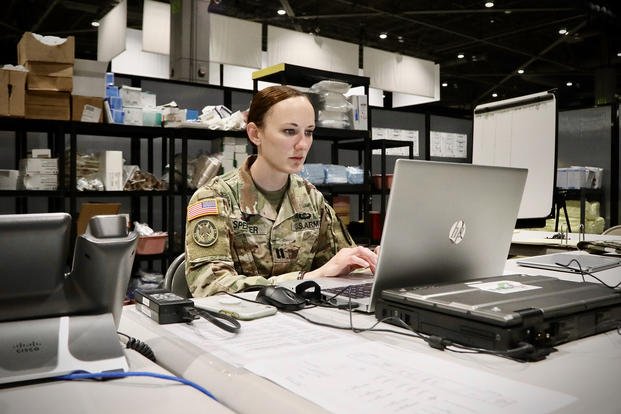Facebook, Instagram, Twitter? Despite what you may think, email is the most common way to communicate when looking for a job. From sending a resume to a prospective employer, to following up on health-care benefits, to sending photos to family, email dominates. In fact, one report notes 122,500,453,020 emails are sent every hour of every day.
What makes an email effective and what causes the message to land flat or fall into a black hole of non-response? For starters, how the email is crafted, who it is directed to and the intended response of the communication make a huge difference in what is received.
Consider how you want to be perceived by the recipient, and what it will take to build that impression. For instance, if you are emailing your former Army buddy with a copy of your resume for them to pass on to their boss, you will need to reestablish the warm tone of the relationship you had in the Army and communicate who you are today and the type of work you are seeking. Without this step, they might feel reluctant to advocate for you to their supervisor.
Keys to Successful Communication
1. An Effective Email Starts with Intention.
What is the purpose of the message? Are you introducing yourself as a potential job candidate, forwarding a list of references or confirming an interview? Before you write the email, consider whether your intention is to elicit a response or simply share information.
2. Should This Be a Long or Short Message?
Consider how much information, detail and context your message needs to be effective. If you are following up with a hiring manager who requested a copy of your references, you can keep the message brief and still professional and polished.
Remind the recipient who you are and why you are writing, and include your attachments. There is no need to repeat all the key points from your resume, which might frustrate the reader who was expecting just one piece of information from you -- your references.
3. Who Is the Intended Recipient?
If the recipient is someone you know, you might be able to skip some of the introductory formality. If you've never met this person before, the email is their first impression of you.
4. What Do I Want Them to Do with My Message?
Consider the desired action of the email: Is it a FYI only, or are you asking the recipient to introduce you to their colleague? State the request early in the message.
Consider using the B.L.O.T. approach: Bottom Line On Top. Your email's opening paragraph might read: Hello, John. Below is the information about my background, which I would appreciate you forwarding on to Emily. Please let me know when you have done this, so I can follow up with her. In this example, you make it very clear to John what the message is about, what is asked of him and what you intend to do next.
5. Details Matter.
As you email others, be sure your email address reflects your professionalism. For instance, avoid email addresses that casually boast your military posturing, such as MarinesRule@Host.com or BigGuns4Hire@Host.com.
These are not professional and send the message that you still live in the military mindset. Instead, use your first name, middle initial (if you use it) and last name. If that email name is taken, consider adding a simple number or punctuation. For example: JosephPJones@Host.com or Joe.Jones@Host.com or JosephJones223@Host.com make it clear who the sender is and doesn't distract the recipient.
Why Emails Don't Get Read (or Responded to)
To ensure your emails are responded to, avoid these common mistakes:
1. Disorganized Message.
Without a clear goal, direction, purpose and recipient, you put all the burden on the recipient to understand what you want. Instead, be clear, compelling and concise in how you address and craft your emails to increase the chance they will be read and responded to.
2. Typos and Grammar Mistakes.
No one enjoys receiving an email full of careless errors. It shows laziness, sloppiness or a lack of care and attention. Recruiters and hiring managers may quickly discard any communication with errors, believing that if you can't proofread your message, how could I expect you will take care in doing the job?
When done with care and intention, email can be a powerful and professional way to communicate throughout your career.
Want to Know More About the Military?
Be sure to get the latest news about the U.S. military, as well as critical info about how to join and all the benefits of service. Subscribe to Military.com and receive customized updates delivered straight to your inbox.












